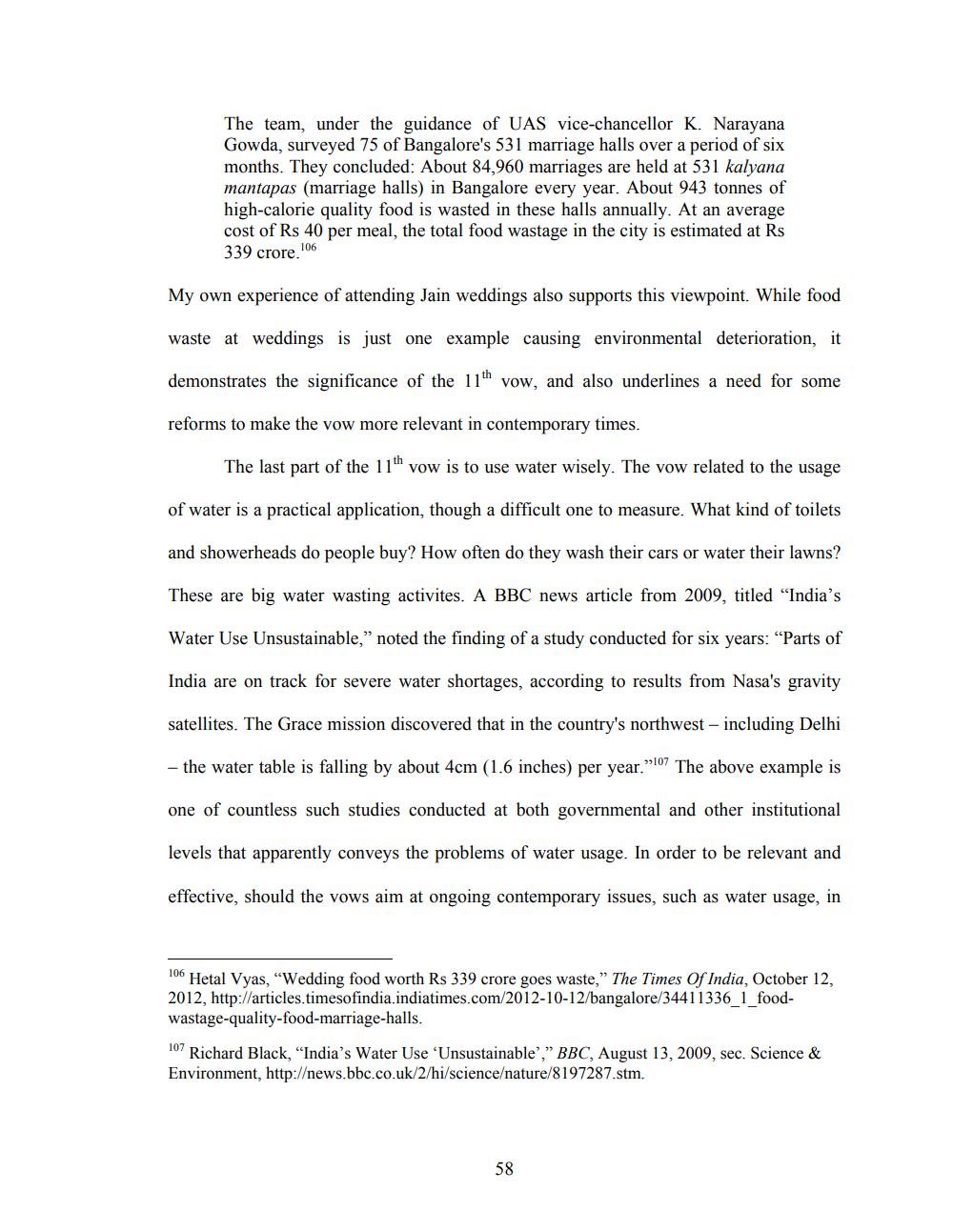________________
The team, under the guidance of UAS vice-chancellor K. Narayana Gowda, surveyed 75 of Bangalore's 531 marriage halls over a period of six months. They concluded: About 84,960 marriages are held at 531 kalyana mantapas (marriage halls) in Bangalore every year. About 943 tonnes of high-calorie quality food is wasted in these halls annually. At an average cost of Rs 40 per meal, the total food wastage in the city is estimated at Rs 339 crore.
My own experience of attending Jain weddings also supports this viewpoint. While food
waste at weddings is just one example causing environmental deterioration, it
demonstrates the significance of the 11th vow, and also underlines a need for some
reforms to make the vow more relevant in contemporary times.
The last part of the 11th vow is to use water wisely. The vow related to the usage
of water is a practical application, though a difficult one to measure. What kind of toilets
and showerheads do people buy? How often do they wash their cars or water their lawns?
These are big water wasting activites. A BBC news article from 2009, titled "India's
Water Use Unsustainable," noted the finding of a study conducted for six years: "Parts of
India are on track for severe water shortages, according to results from Nasa's gravity
satellites. The Grace mission discovered that in the country's northwest - including Delhi
- the water table is falling by about 4cm (1.6 inches) per year."107 The above example is
one of countless such studies conducted at both governmental and other institutional
levels that apparently conveys the problems of water usage. In order to be relevant and
effective, should the vows aim at ongoing contemporary issues, such as water usage, in
106 Hetal Vyas, "Wedding food worth Rs 339 crore goes waste," The Times Of India, October 12, 2012, http://articles.timesofindia.indiatimes.com/2012-10-12/bangalore/34411336_1_foodwastage-quality-food-marriage-halls.
107 Richard Black, "India's Water Use 'Unsustainable',” BBC, August 13, 2009, sec. Science & Environment, http://news.bbc.co.uk/2/hi/science/nature/8197287.stm.
58




